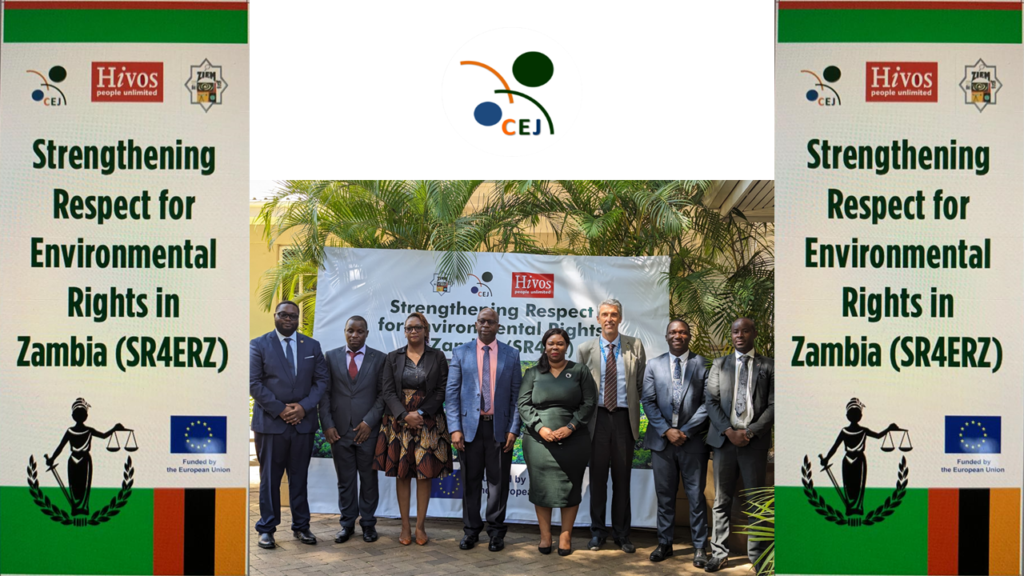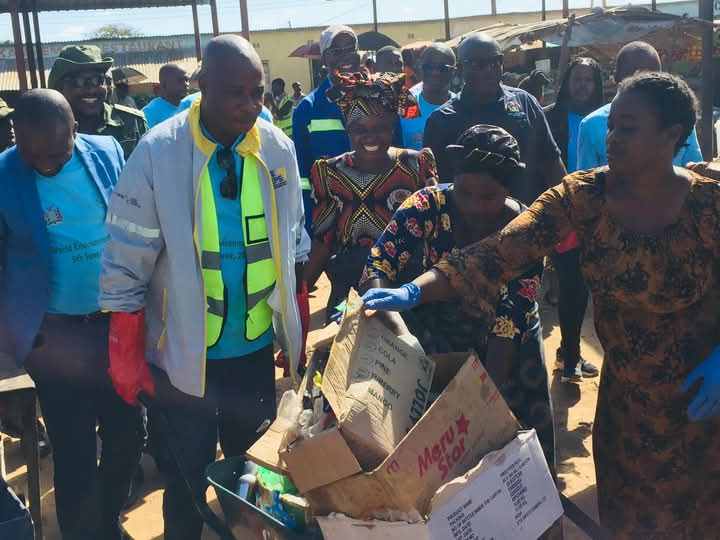By: Ali Kaunda – SR4ERZ Project Coordinator.
Introduction
Situated in the heart of Zambia lies a region of unparalleled natural beauty. However, beneath this surface, communities grapple with significant environmental challenges. From the looming threat of deforestation to the insidious impact of water pollution, these issues not only endanger Zambia’s diverse biodiversity but also threaten the livelihoods and well-being of its inhabitants. As the steward of the Strengthening Respect for Environmental Rights in Zambia (SR4ERZ) initiative at the Centre for Environment Justice (CEJ), I invite you to explore the core issues, our strategies for action, and the transformative outcomes we envision for our project.
The Problem/Rationale
Zambia’s environmental landscape faces significant threats. Rampant deforestation, driven by unsustainable logging and agricultural practices, has led to the depletion of vast forested areas, endangering ecosystems and exacerbating climate change. Additionally, water pollution, primarily originating from mining activities, poses a dual threat to both human health and aquatic life. These challenges are compounded by inadequate waste management, leading to a cycle of environmental degradation and public health risks.
However, beneath these challenges lies a deeper issue: a widespread lack of awareness and understanding of environmental rights among communities, alongside weak enforcement of environmental laws and limited advocacy capacity among stakeholders. Consequently, marginalized communities bear the brunt of environmental injustices, facing disproportionate impacts from pollution, land degradation, and the loss of natural resources.
What Can Be Done
Addressing these multifaceted challenges requires a comprehensive approach that integrates advocacy, capacity building, and collaborative partnerships. Through the SR4ERZ project, CEJ is leading proactive measures to empower communities, strengthen environmental governance, and promote sustainable practices.
At the core of our strategy is community empowerment. By raising awareness of environmental rights and providing communities with the tools to advocate for themselves, we aim to catalyze grassroots movements for environmental justice. This involves conducting awareness campaigns and offering targeted training sessions on environmental laws and regulations to spark community-led initiatives for sustainable resource management.
Furthermore, we recognize the crucial role of engaging policymakers and stakeholders in driving systemic change. Through evidence-based advocacy and inclusive dialogue platforms, we aim to influence decision-makers to prioritize environmental protection and advocate for the rights of vulnerable communities. This includes advocating for stronger environmental regulations, promoting sustainable land-use practices, and holding accountable those who threaten environmental integrity.
Importantly, collaboration is essential for maximizing our impact. By forming partnerships with civil society organizations, government agencies, academia, and the private sector, we combine our collective expertise and resources to address shared challenges and scale sustainable solutions. Through these partnerships, we foster a culture of cooperation, knowledge exchange, and mutual support in environmental stewardship.
Expected Results
As the SR4ERZ project progresses, we envision a future where environmental justice is upheld, and communities thrive in harmony with nature. By project’s end, we anticipate several transformative outcomes:
- Increased Awareness and Empowerment: Communities equipped with heightened awareness and understanding of environmental rights, enabling them to actively participate in decision-making processes and demand accountability.
- Strengthened Environmental Governance: A reinforced legal and regulatory framework supporting environmental protection, leading to enhanced enforcement mechanisms and greater accountability.
- Sustainable Resource Management: Promotion of sustainable land-use practices, supported by community-led conservation initiatives and strengthened partnerships for natural resource stewardship.
- Enhanced Resilience to Climate Change: Adoption of climate adaptation measures and resilience-building activities, bolstering communities against the impacts of climate change and fostering more resilient livelihoods.
Conclusion
Navigating Zambia’s intricate environmental landscape requires collective action, unwavering commitment, and innovative solutions. Through the SR4ERZ project, CEJ stands at the forefront of efforts to fortify respect for environmental rights, empower communities, and pave the way for a more just and sustainable future. Together, let us forge a Zambia where environmental justice prevails, and the natural world flourishes for generations to come.



